Julian Assange: UK considers talks with Ecuador minister
- Published
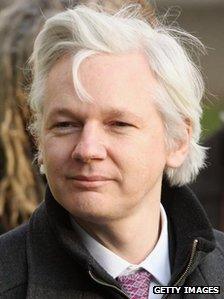
Mr Assange has been granted political asylum by Ecuador
The UK government is considering a request from Ecuador to hold talks on the future of Wikileaks founder Julian Assange, the Foreign Office has said.
It confirmed Ecuador's foreign minister Ricardo Patino, who will visit Mr Assange this month, had offered to meet Foreign Secretary William Hague.
Mr Assange has lived in the Ecuadorean embassy in London for a year, having been granted political asylum there.
He faces extradition to Sweden over sex allegations, which he denies.
Once in Sweden, he fears onward extradition to the US where he could face charges over the release of top secret documents by Wikileaks.
The publication of a mass of leaked diplomatic cables by the website has embarrassed a number of countries.
'Regular contact'
An Ecuadorean government spokesman said Mr Patino would be visiting London on 16 June to meet Mr Assange at the embassy on the "eve of the first anniversary of Mr Assange in our diplomatic premises".
The spokesman said the country's Ministry of Foreign Affairs had informed UK authorities of the visit and had "offered to meet with Foreign Secretary William Hague to discuss the case of Julian Assange".
A Foreign Office spokesman said it was considering the request.
"UK government officials have been in regular contact with representatives of the Ecuadorean government, both in London and Quito, about Mr Assange," he said.
"We hope the visit will contribute to our joint commitment to finding a diplomatic solution to this issue."
Mr Assange entered the embassy in the Knightsbridge area of London on 19 June 2012, after the UK's Supreme Court dismissed his bid to reopen his appeal against extradition.
It had given him a two-week grace period before extradition proceedings could start.
He has been warned he will be arrested when he leaves the embassy for breaking the terms of his bail conditions following the ruling, and officers from the Metropolitan Police continue to mount a round-the-clock guard on the building.
In February, the police said the bill for the 24-hour guard stood at almost £3m.
- Published15 February 2013
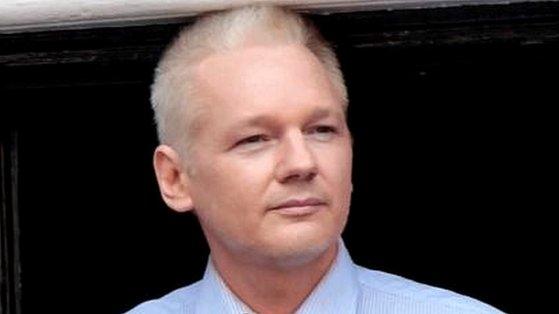
- Published25 June 2024
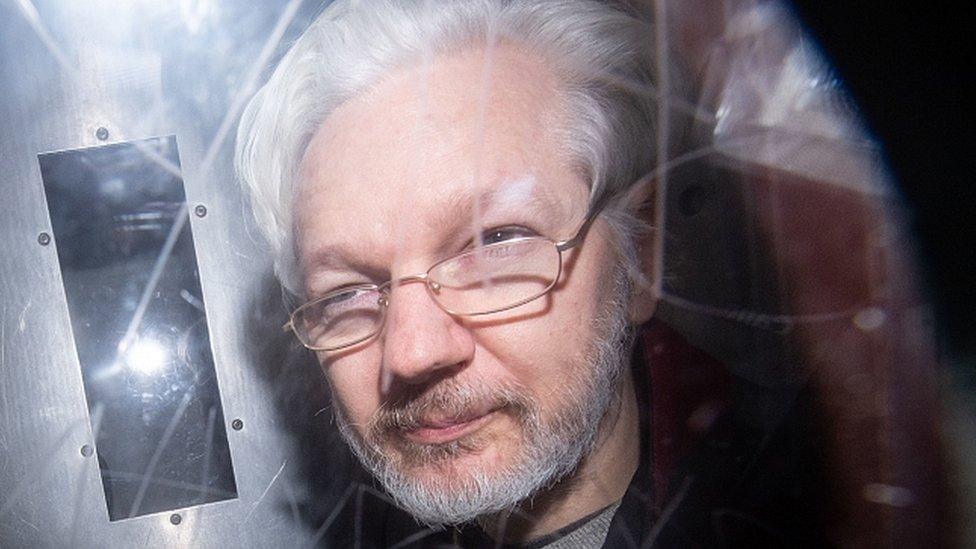
- Published13 March 2015
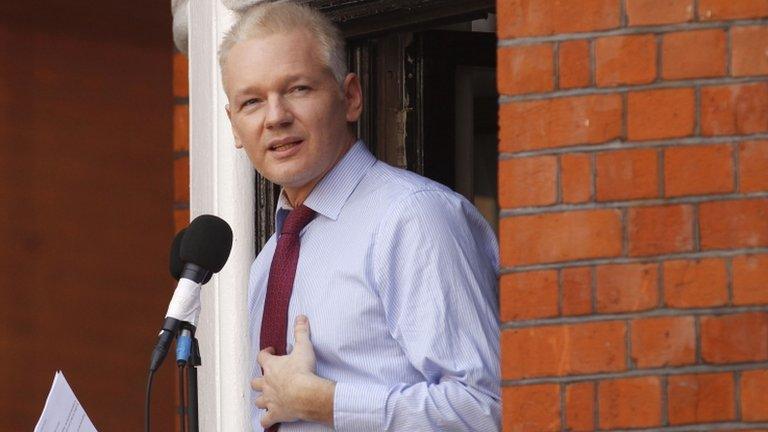
- Published8 October 2012
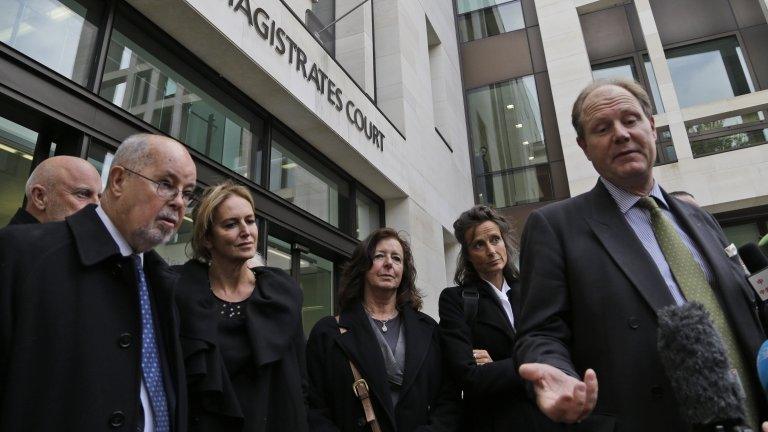
- Published27 September 2012
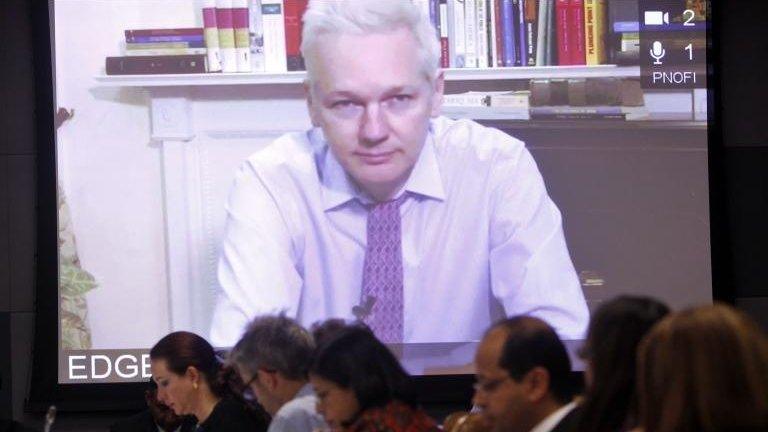
- Published3 September 2012
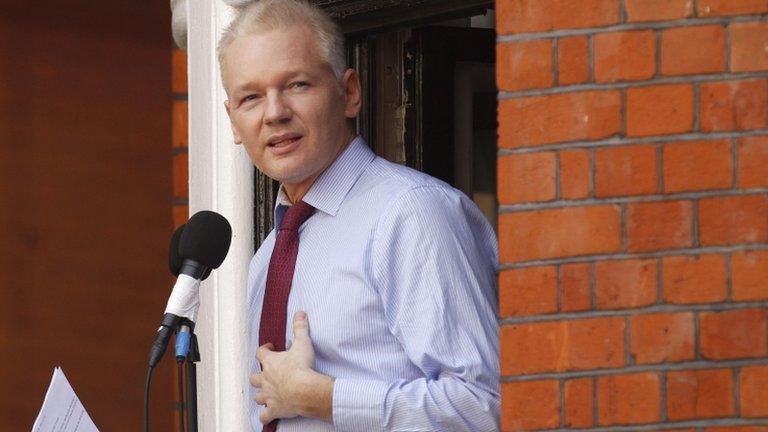
- Published31 August 2012
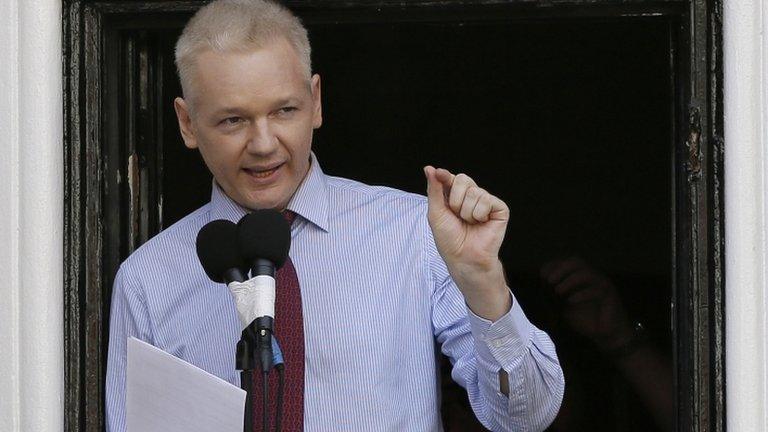
- Published30 August 2012
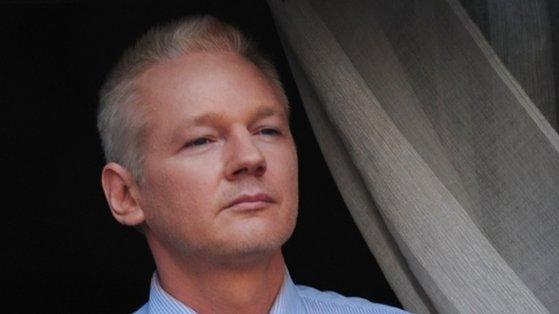
- Published25 April 2011